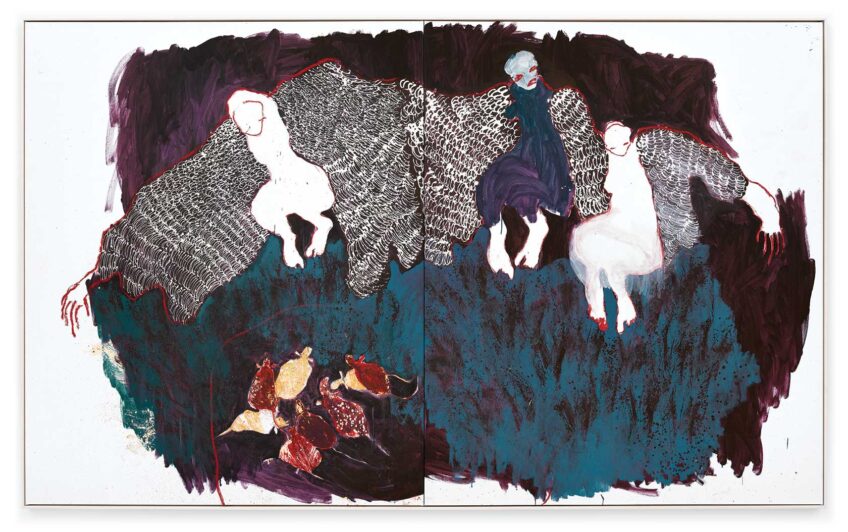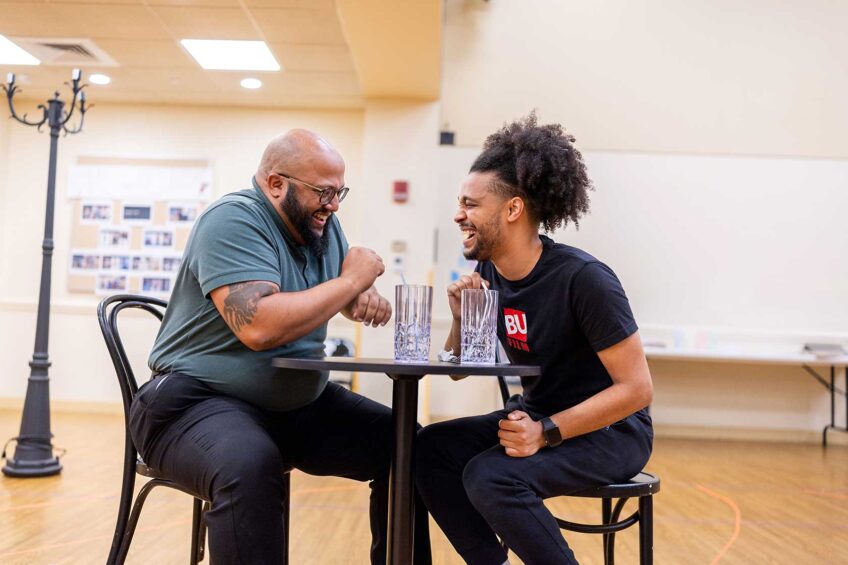On the rare occasions that Western media actually mention the plight of African women, the references usually focus on their helplessness against the ever-accelerating downward spiral of poverty, HIV/AIDS and war crimes.
Those interested in the other side of the coin can check out the internationally acclaimed documentary “Sisters in Law,” premiering in the Boston area on the WGBH series “Independent Lens” this Sunday night after making its national broadcast debut last month.
The moving, often funny film looks into the lives of state prosecutor Vera Ngassa and court president Beatrice Ntuba as they work to protect women and children in Cameroon from difficult situations like sexual and physical abuse.
For all its emotional impact, it’s interesting to note that “Sisters in Law” was initially intended to tell an entirely different story.
While traveling through the West African nation doing research in late 2004, directors Kim Longinotto and Florence Ayisi hatched an idea to make a film about a woman named Julia, who was to become the first female judge in the village of Kumba. The film revolved around Julia’s ascension to the bench amid strong rejection from the men in her conservative Muslim town.
After completing filming, the directors sent the tape about Julia’s story to England, but it was severely damaged when it was scanned in an X-ray machine at Heathrow Airport in London. In a state of panic, the filmmakers had to regroup fast, and asked Ngassa, a co-worker of Julia’s, for assistance.
A quick decision was made to make the film about Ngassa as she goes about her everyday life as a lawyer over the course of eight weeks. Luckily for Longinotto and Ayisi, Ngassa agreed to let filming begin immediately — the opening scene in the finished film is actually the first piece of footage the filmmakers shot.
“I was quite impressed with Vera,” said Longinotto during a telephone interview from her home in London. “She is smart, hilarious and has such humanity, and she really cares about the people in all of her cases.”
In that first scene, Ngassa deals with a case where a woman accuses her abusive husband of kidnapping their child. In what looks like an episode of “Judge Judy,” Ngassa yells at the husband for being an insult to manhood to the point that the man is almost speechless.
Ngassa credits her courtroom manner to her strong commitment to helping those who are less fortunate through what she calls “natural justice,” or just plain common sense. She said she became interested in becoming a lawyer after watching the film adaptation of “To Kill A Mockingbird,” Harper Lee’s story of an attorney defending a black man accused of raping a white woman in Depression-era Alabama, as a child.
“I have always had a sense of justice and wanting to be fair with everyone,” Ngassa said during a recent interview with National Public Radio. “I want to help the oppressed, and in order to help others, you have to be strong yourself.”
Through the course of “Sisters in Law,” Ngassa brings a litany of heartbreaking cases before Ntuba, like those of Manka, a 6-year-old covered in scars that has run away from her abusive aunt, and Amina, a wife seeking a divorce from her husband, who beats her everyday.
But the film’s most controversial case is that of 9-year-old Sonita, who accuses her neighbor of rape.
In a scene almost unthinkable in an American courtroom, Sonita must stand next to the accused in the courtroom to plead her case. The neighbor says that the sexual encounter was not only consensual, but that Sonita also instigated the encounter.
Without missing a beat, Ngassa’s “natural justice” emerges. She calls the man’s reasoning absurd, saying that “a prepubescent girl without breasts doesn’t know what sex is.” The judge agrees. The neighbor is convicted and sent to jail for nine years.
“After that case was finished, we interviewed Sonita,” Longinotto said. “She said she felt relieved to address the accused in person and felt stronger about herself. Sometimes we underestimate children and the strength they have for handling difficult situations.”
“Sisters in Law” has spent the last two years on the international film festival circuit, where it has earned praise from enthusiastic audiences impressed by its uplifting, progressive message about feminism in Africa. After a viewing at the 2005 Cannes Film Festival, a standing ovation was given to Ngassa and Ntuba, who were in the audience.
Ngassa and Ntuba now show the film to female lawyer groups throughout Cameroon. Since the film was shot, Ntuba has been promoted to a high court judgeship in Cameroon’s capital. Ngassa teaches law at a nearby university.
Men and women have had differing reactions to the film, according to Longinotto. During a viewing in South Africa, many men in the audience had a lukewarm response and didn’t approve of showing Sonita’s face in the film. After the screening, however, several women subtly approached Longinotto, saying that they too had been raped, and were happy about the film and felt empowered themselves.
Longinotto hopes viewers, especially women, will draw the same feeling of empowerment and inspiration.
“I want people to feel a bond with these people in the film,” she said. “I want them to see that people everywhere go through the same struggles and want the same sense of dignity.”
“Sisters in Law” airs Sunday night at 9 p.m. on WGBH Channel 44. For more information, visit www.wgbh.org.






